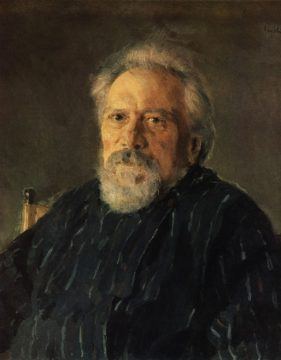Yelena Furman in The Baffler:
 AS A PROFESSOR OF MINE in graduate school used to say, there is more to Russian literature than Tolstoevsky, a witticism borne out of frustration with American readers’ familiarity with just two writers at the expense of a vast and varied body of works. You can add Chekhov, Turgenev, Pushkin, and several twentieth-century names to the list of Russian writers read by English speakers. To a large degree, this paucity is not surprising: the availability of English translations depends on a combination of financial factors and publishers’ preferences, which tend toward known entities. The field of English-language translation constitutes a kind of canon of its own.
AS A PROFESSOR OF MINE in graduate school used to say, there is more to Russian literature than Tolstoevsky, a witticism borne out of frustration with American readers’ familiarity with just two writers at the expense of a vast and varied body of works. You can add Chekhov, Turgenev, Pushkin, and several twentieth-century names to the list of Russian writers read by English speakers. To a large degree, this paucity is not surprising: the availability of English translations depends on a combination of financial factors and publishers’ preferences, which tend toward known entities. The field of English-language translation constitutes a kind of canon of its own.
In the twenty-first century, when notions of canon formation have undergone significant expansion, the translation of Russian works in the United States has begun to reflect this shift. As the Russian Library at Columbia University Press states on its website, it publishes “works previously unavailable in English and those ripe for new translations.” Archipelago Books, Deep Vellum, and Ugly Duckling Presse have brought out translations of several notable contemporary Russian writers. Now, NYRB Classics has published Lady Macbeth of Mtsensk: Selected Stories of Nikolai Leskov (translated primarily by Donald Rayfield, along with pieces by Robert Chandler and William Edgerton), bringing together previously and newly translated works by a writer whose “absence from classic Russian literature lists must end now!” as the blurb by Gary Shteyngart exhorts. (Presumably he means in the United States, since Leskov is known in Russia, although secondarily to the nineteenth-century giants.) Rayfield recently spoke about his work on the volume for Read Russia’s Russian Literature Week.
Nikolai Leskov (1831-1895) had a tumultuous personal life and, in a related development, was a bilious human being. As Rayfield notes in his introduction, his father died when Leskov was a teenager, after which he was pawned off on relatives who did not want him. During his marriage, his wife “suffered from psychotic episodes” which Leskov “probably exacerbated,” and she lived out her days in a mental institution. Due to subsequent relationships that went awry, including one with his servant, he at a certain point “became the sole charge of four children by three different women.”
More here.
